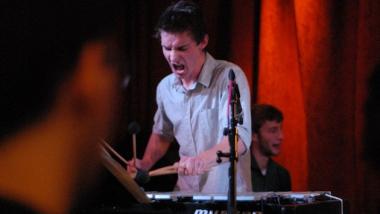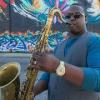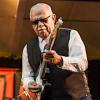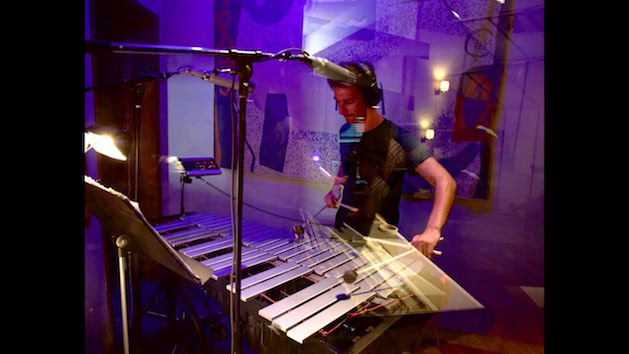
Chase Jackson doesn’t shy away from a challenge. On Friday, the third show in his four-night stand at the Black Cat, he was down a man at the start of the gig. With his drummer caught in traffic, the vibraphonist decided to open with a set of chamber jazz, playing duo with double bassist Owen Clapp.
Playing with four mallets, Jackson luxuriated in the plaintive Jimmy Van Heusen standard “It Could Happen to You” with shimmering waves of sound while Clapp’s nimble bass line provided a sturdy, propulsive framework. As Jackson delivered the ascending phrase (for Johnny Burke’s lyric “run when church bells ring”) with an emphatic, chiming run, the club’s identity crisis came into full relief.
The Black Cat is both the city’s premiere jazz spot and the loudest music room in the region, particularly on weekends when it’s packed with bibulous celebrants. Undaunted by the roar of conversation, including occasional whoops and shrieks from a bachelorette party seated near the stage, Jackson and Clapp responded with another sumptuous ballad, “Alone Together,” with the vibe’s metallic tones cutting through the conversational thicket. By the time they transitioned into a snappy, midtempo arrangement of John Coltrane’s “Naima,” the duo had expanded, with some particularly resourceful drumming by Richmond’s Dru "Druvvy" M LE (aka Drew McLean).
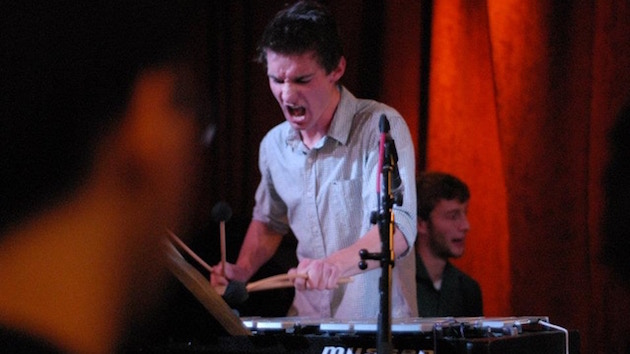
While Jackson is no stranger to the Bay Area jazz scene, he’s coming into his own as a bandleader with a sharp vision as a composer. A standout at Berkeley High, where he won numerous awards in various national competitions, he went on to study jazz composition and performance at the Oberlin Conservatory of Music. Drawn to Los Angeles by the numerous opportunities for composing, he’s now in the midst of a master’s program at the University of Southern California’s Thornton School of Music.
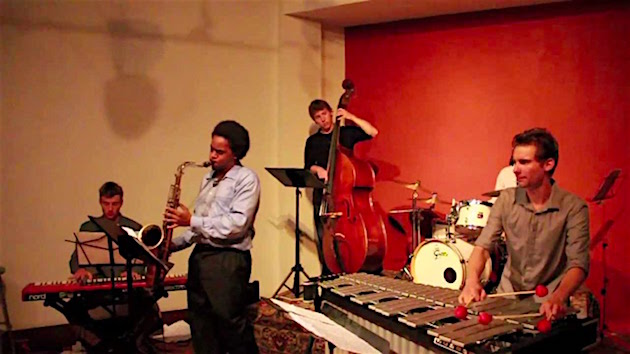
Not many people in the club were able to hear him, but Jackson announced several times that he also had reason to celebrate, as the Black Cat gig marked the official release of his debut album Lay of the Land Part 1, an impressive set of original compositions featuring many of the same musicians who joined him for the second set.
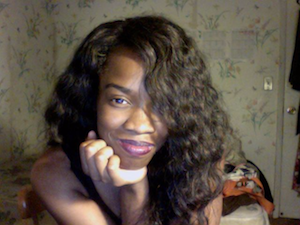
Rather than focusing on that material, he delivered a set of taut and beautifully sculpted funk jazz with Druvvy, Clapp on electric bass, San Francisco tenor saxophonist Joe Cohen, L.A. trumpeter Aaron Janik, and Oakland pianist/keyboardist Ian McArdle. Putting down his mallets and picking up a guitar, Jackson introduced fellow Berkeley High grad Courtney Knott, a powerhouse soul jazz singer who kicked off the set with a sultry, slow burning version of Roberta Flack’s “I Feel Like Making Love to You.”
While most of the band’s repertoire was drawn from the 1970s, there was nothing nostalgic or heavy-handedly old-school about Jackson’s music. Under the rhythmic auspices of Druvvy the band put its own stamp on the material, like an arrangement of Earth Wind & Fire's “Fantasy” (with Jackson back on vibes) that felt like the Pat Metheny Group if the band’s drummer, Paul Wertico, were steeped in hip hop.
Druvvy’s command of jazz/ hip hop hybrid was most fully realized on a stuttering arrangement of Herbie Hancock and Bennie Maupin’s “Butterfly” that captured the tune’s delicate beauty and air of mystery. By the time Knott delivered Outkast’s “In Love Again,” about half the audience was paying attention to the music, and the band sounded ready for another extended engagement.
Jackson returns to the Bay Area for another spate of gigs next month, playing an acoustic set at Oakland’s Sound Room on Dec. 15 with McArdle, bassist Giulio Cetto, drummer Michael Quigg, and special guests, and closes out the year with the sextet he co-leads with Detroit tenor saxophonist De'Sean Jones, KNMDK, at the Black Cat Dec. 27-31. Clearly, we’re going to be hearing a lot more from Chase Jackson, though hopefully not always over audiences who see music as an obstacle to conversation.

